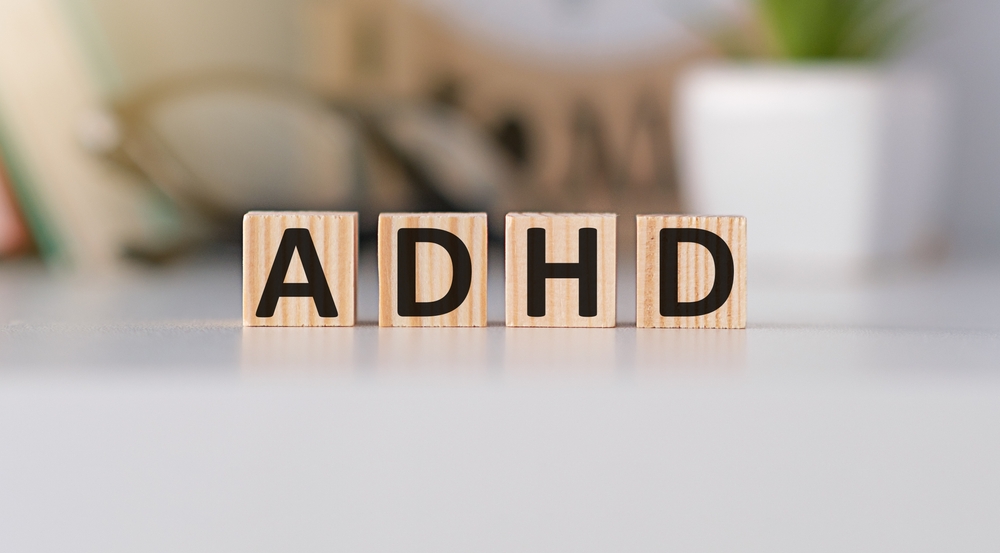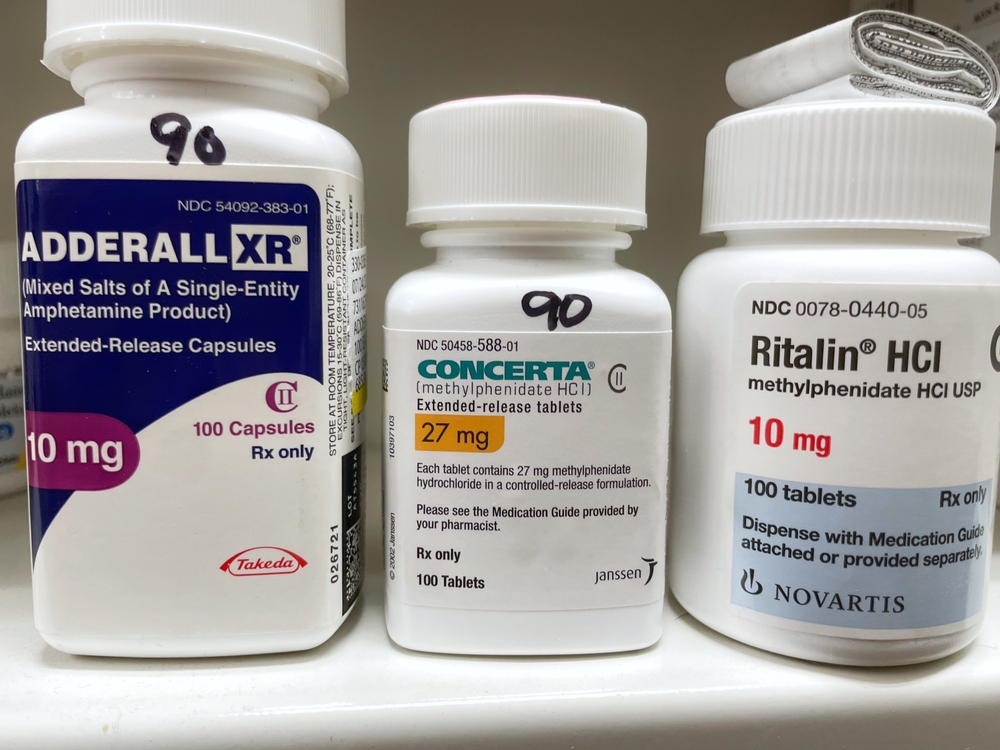Last Updated:
September 18th, 2025

ADHD medications like Ritalin and Adderall are often seen as focus boosters, with some people taking them off-label to stay sharp or get ahead. But behind the hype lies a real risk. This article breaks down what these drugs do, who they’re for and why misuse can be dangerous.
What are ADHD medications?
ADHD medications are designed to help people with Attention Deficit Hyperactivity Disorder manage some of the most disruptive symptoms, including difficulty focusing, impulsive behaviour, restlessness and forgetfulness.
While they don’t offer a cure, many describe these medications as acting like a pair of glasses for the brain. Tasks that once felt foggy, like concentrating on work or staying organised, begin to feel clearer and more manageable.
There are two main categories of ADHD medication: stimulants and non-stimulants. Stimulants are prescribed more frequently, as they tend to work quickly and provide strong results when used correctly.
Ritalin vs Adderall
You might have heard Ritalin and Adderall spoken about as if they’re the same, especially in conversations surrounding ADHD treatment. While both are stimulant medications used to manage the condition, they differ in how they work and importantly, only one is available for prescription in the UK.
Ritalin
Ritalin is the brand name for methylphenidate, a stimulant that increases dopamine and norepinephrine levels. In the UK, Ritalin is widely prescribed, especially for children, because of its long-standing use and the familiarity most doctors have with its effects. It also acts fairly quickly, which can be helpful for those who struggle with studying or completing daily tasks.
Adderall
Adderall, on the other hand, is more commonly used in the United States and isn’t prescribed in the UK. It contains a mix of amphetamine salts, which affect the brain in a similar way to Ritalin by increasing dopamine and norepinephrine. Although the goal is the same, Adderall tends to last a bit longer in some cases. In the US, it’s often the first-choice medication but in the UK, similar effects are achieved through alternatives such as lisdexamfetamine.
Are ADHD medications addictive?
It can be surprising to learn that people without ADHD sometimes take these medications but there’s a reason it happens. Because ADHD medications like Ritalin and Adderall are stimulants, they can create a sense of increased energy, alertness or productivity in people who don’t have ADHD.
However, there’s an important distinction to be made. When someone with ADHD takes stimulant medication under medical supervision, the risk of addiction is very low, even with long-term use. That’s because their brain processes the medication differently, bringing it back into balance rather than overstimulating it.
When stimulant medications are taken without a diagnosis or in higher doses than prescribed, they raise dopamine levels in a way that taps into the brain’s reward system. Over time, this can lead to psychological and physical dependence, especially if the drug is being used for performance enhancement or emotional escape.
Why would someone want to misuse ADHD medications?
There are several reasons why someone without ADHD might choose to take these drugs and the pressure to perform often plays a role.
Some take them to stay awake for longer, especially during exam season or when deadlines are looming. Others use them to boost concentration, hoping to get more done in less time. There’s also a growing belief, fuelled by social media and peer anecdotes, that ADHD meds can improve intelligence or give users a mental edge.
While the feeling of increased alertness may be real, research tells a different story. Studies consistently show that these medications do not enhance learning or raise intelligence in people without ADHD. Any short-term focus boost can come at a high cost, potentially leading to anxiety, disrupted sleep, dependency and in some cases, serious health complications.
How could the rise of ADHD medication in the UK affect misuse?
In recent years, the number of ADHD prescriptions issued in England has risen sharply. According to a study by the University of Huddersfield and Aston University, prescriptions have increased by an average of 18% each year since the start of the Covid pandemic.
Ritalin remains widely used across the country but another medication, lisdexamfetamine, has seen even more dramatic growth. Often compared to Adderall in terms of effect, its prescriptions have reportedly climbed by 55% annually. Experts point to the lingering impact of the pandemic on mental health and the growing visibility of ADHD on social media platforms like TikTok and Instagram.
This rise in prescriptions has brought many people the help they need. But it has also increased the risk of misuse in several ways:
- As availability grows, so does the chance of non-prescribed use among students or professionals looking for an edge
- Online trends often glamourise ADHD medication, falsely presenting it as a smart drug
- With more people having access, there’s a higher risk of medication being shared or sold
- Pressure to meet academic or work expectations may push some toward trying these drugs without medical advice
Raising awareness about the safe use of ADHD medication is essential, especially as demand continues to grow.
How dangerous can ADHD stimulant medication misuse be?
Taking ADHD medications without a prescription or misusing them by increasing the dose, can lead to serious health consequences. These aren’t harmless study aids, they’re powerful stimulants that affect the brain and body in very specific ways.
One of the most concerning risks is stimulant-induced psychosis. There have been documented cases where misuse led to hallucinations, delusions, paranoia, flat emotions, insomnia and loss of appetite. These symptoms often disappear once the medication is stopped but they point to how disruptive misuse can be for mental health.
The heart is also at risk. Misuse of stimulant medications has been linked to high blood pressure, irregular heartbeat, inflammation of blood vessels and damage to the heart muscle. In rare but severe cases, there have been reports of heart attacks in young people with no prior heart problems after taking large doses.
While prescribed use under supervision is generally safe, using these medications in any other way can be unpredictable and, in some cases, life-threatening.
What are the signs of ADHD medication misuse?
Whether you’re worried about someone you care about or you’ve noticed changes in your own behaviour, it’s important to be aware of the signs of stimulant misuse. ADHD medications can be life-changing when used properly but misuse can lead to a growing dependence that affects your health and daily life.
Physical signs
- Noticeable weight loss or reduced appetite
- Difficulty sleeping or staying asleep
- Rapid heartbeat or high blood pressure
- Headaches, dizziness or ongoing nausea
Behavioural signs
- Taking more than prescribed or finishing prescriptions early
- Hiding pills or lying about medication use
- Using them to stay awake or get ahead, rather than for ADHD
- Pulling away from social or family responsibilities
Psychological signs
- Heightened anxiety or nervousness
- Mood swings, irritability or emotional crashes
- Feeling unable to function without the medication
- Persistent thoughts about needing more pills to cope
How can I get help for stimulant addiction?
If you’ve noticed any of these signs, whether in yourself or someone close to you, it could be time to reach out for help. At UKAT, we offer safe, supportive stimulant rehab programmes that are built around your individual needs. You’re not alone in this. Speak to us today and let us help you take the first step towards recovery.
(Click here to see works cited)
- “Medication for ADHD (Attention Deficit Hyperactivity Disorder).” NHS Choices, NHS, bedslutonchildrenshealth.nhs.uk/neurodiversity-support/adhd-attention-deficit-hyperactivity-disorder/medication-for-adhd-attention-deficit-hyperactivity-disorder/. Accessed 1 May 2025.
- “ADHD Prescriptions in England Have Risen by 18% Each Year since Pandemic.” The Guardian, Guardian News and Media, 11 Mar. 2025, www.theguardian.com/society/2025/mar/11/adhd-prescriptions-in-england-have-risen-by-18-each-year-since-pandemic.
- Lakhan SE, Kirchgessner A. Prescription stimulants in individuals with and without attention deficit hyperactivity disorder: misuse, cognitive impact and adverse effects. Brain Behav. 2012 Sep;2(5):661-77. doi: 10.1002/brb3.78. Epub 2012 Jul 23. PMID: 23139911; PMCID: PMC3489818.





